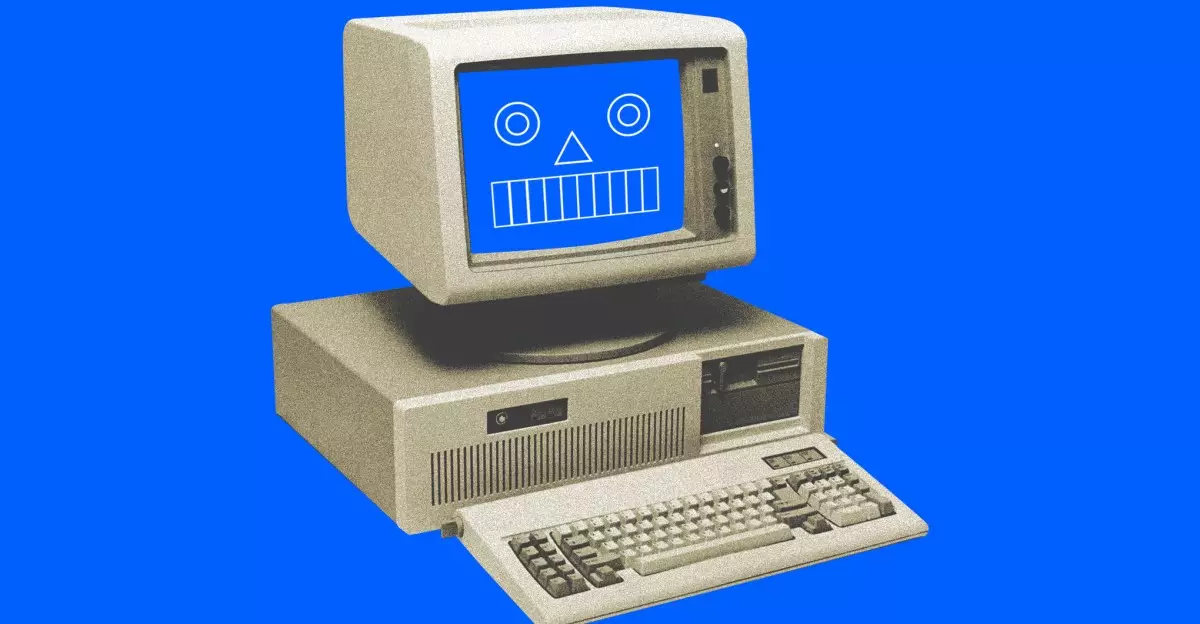The rapid advancement of artificial intelligence has prompted an intense competition among startups to establish themselves as the go-to solutions for the next generation. As AI proliferates across industries, its introduction into educational systems signals a shift in how knowledge is imparted. Companies like OpenAI and Anthropic are not merely taking steps; they’re launching full-scale initiatives aimed at revolutionizing how students interact with technology and learn. This is not just a race to develop products; it’s a battle for influence over the educational landscape itself.
Anthropic’s Strategic First Move in Education
Anthropic is making waves with its announcement of Claude for Education, a nuanced tool tailored specifically for universities. This effort marks the company’s initial foray into academic assistance, a space that is becoming increasingly crucial as students navigate the complexities of modern learning. Alongside the launch, partnerships with prominent educational institutions such as Northeastern University and London School of Economics (LSE) signify a serious commitment to academic integrity and equity in tech access.
At the heart of Claude for Education lies its innovative “Learning mode.” Unlike traditional chatbot functionalities that simply serve answers, this feature is designed to enhance critical thinking among students. By employing Socratic questioning techniques, Claude encourages learners to dissect problems and reflect on their reasoning processes. This method is not just about providing answers; it’s about fostering a deeper understanding of the material—a necessity in an age where memorization is quickly becoming obsolete.
OpenAI’s Established Presence and New Offerings
While Anthropic is just venturing into the academic arena, OpenAI has already established itself as a significant player in this field. With the launch of ChatGPT Edu more than a year prior, OpenAI has been actively contributing to educational enrichment through partnerships across various colleges. Programs such as the NextGenAI Consortium reflect a proactive approach to fortifying AI research within academic institutions, pledging $50 million to support this endeavor across 15 colleges.
OpenAI’s recent announcement offering ChatGPT Plus free to college students across the U.S. and Canada introduces a new dynamic in the AI landscape. By making premium features accessible to students during peak academic seasons, OpenAI recognizes the pressures students face today. The promise of enhanced functionalities—like large file uploads and advanced voice features—positions ChatGPT as an indispensable tool for learners striving to stay ahead in an ever-evolving educational environment.
The Underlying Motivations Behind Educational Investments
The simultaneous rollout of educational initiatives by both Anthropic and OpenAI underscores a pivotal realization: college students represent a lucrative and influential demographic. As these companies vie for dominance in the academic sector, they aim not only to provide educational tools but to effectively shape the interaction of future professionals with AI technologies.
The focus on building AI literacy is particularly significant in a workforce increasingly influenced by automation and intelligent systems. It’s not enough to teach students how to use tools; educators also need to ensure that learners understand the implications of AI technology on a societal level. OpenAI’s Leah Belsky emphasizes this sentiment, advocating for a comprehensive approach that prepares students for the challenges and opportunities ahead.
The race to become the default AI tool in academia is about more than competition; it represents a transformative shift in educational methodologies. As startups redefine what learning can look like in the digital age, the potential for AI to enrich educational experiences becomes clear. However, such radical changes come with responsibilities. Ensuring ethical usage, promoting critical thinking over mere fact-finding, and fostering an understanding of AI’s societal implications will be essential as we step into this new era. The interplay of education and technology promises to reshape not just how knowledge is transmitted, but how society views learning itself.

